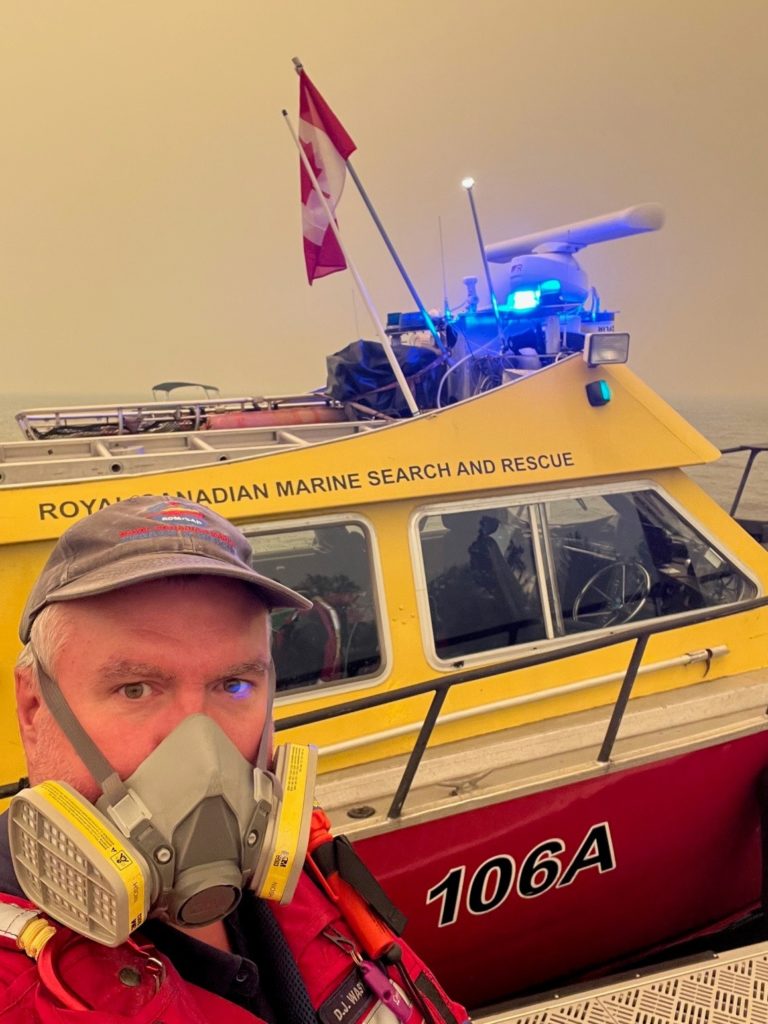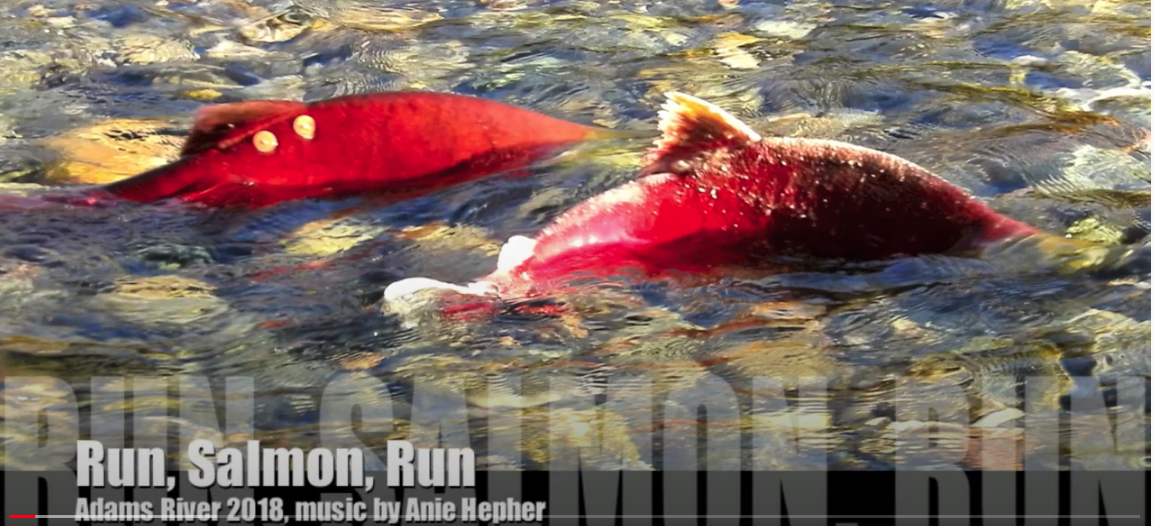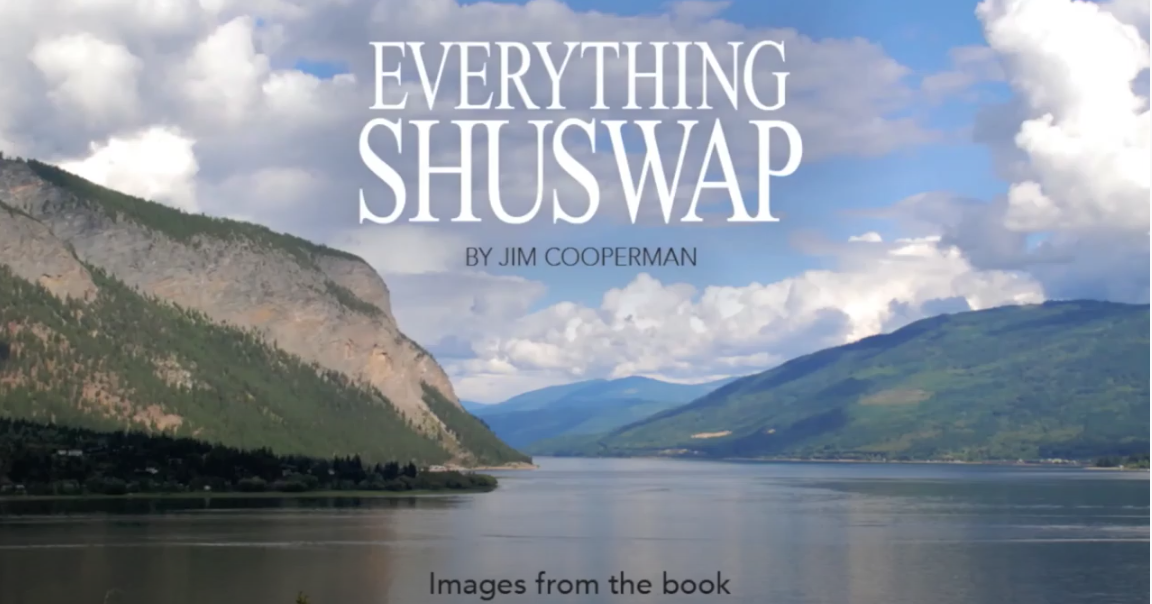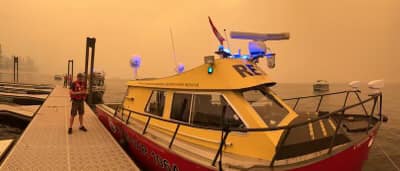
At 8:30 pm, just three hours after the 10 km long “controlled” burn was lit by an aerial ignition on August 17th, a crew from the local Volunteer Fire Department drove up the 670 Scotch Creek logging road to see that the fire was already nearing the creek and was too dangerous to fight. Just one hour later they were at Meadow Creek and saw how the fire had jumped across the valley and then proceeded to warn residents and called for an evacuation order. They retreated east to a field and phoned the BC Wildfire Service, who did not arrive until early in the morning when it was too late to control what was by then an enormous fire.
The next day, during the daily 11 am to noon briefing with the BC Wildfire Service, Shuswap Volunteer Search and Rescue (SVSAR) manager Gord Bose, along with two other managers, sensed that an evacuation order was imminent and began making the preparations needed in case the order was called. Once an order is called, SVSAR’s role is to go door-to-door and urge residents to leave, using a list of addresses to keep track of everyone. If residents chose to stay, then the police were notified.
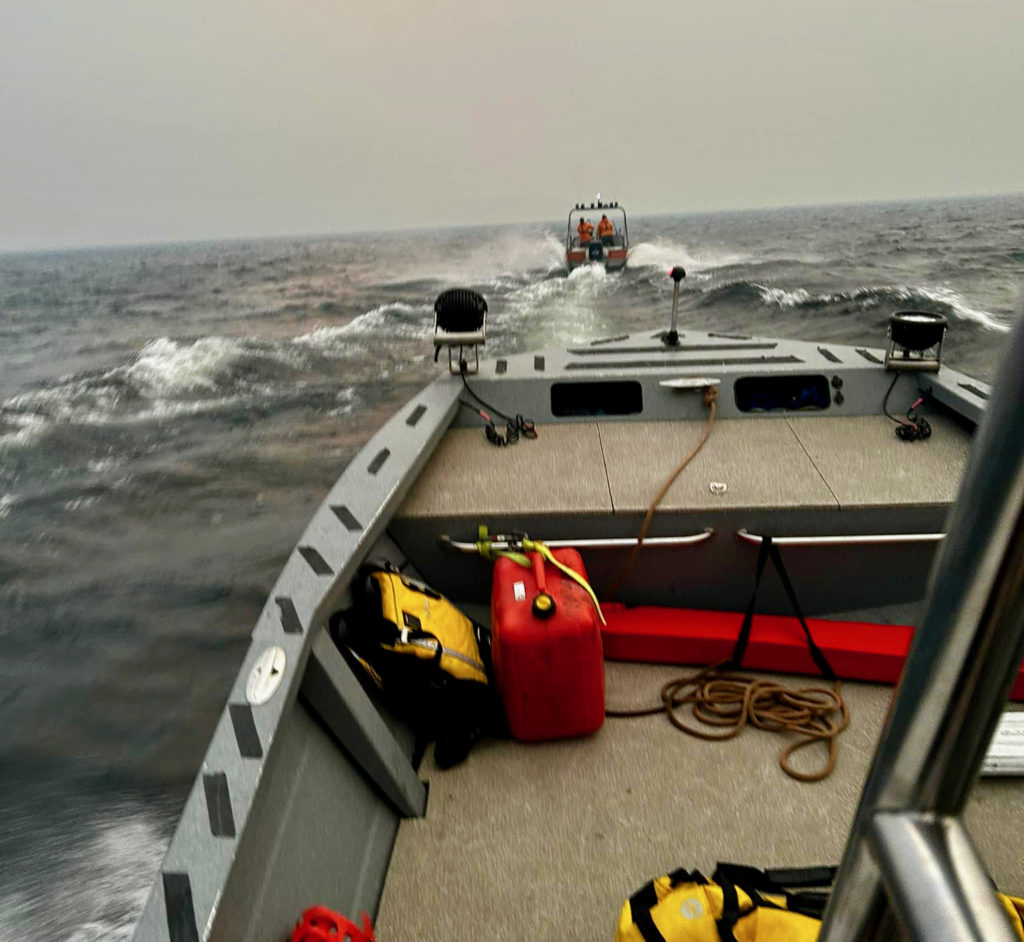
Two SVARS boats were set into the water at the Shuswap Marina near Sorrento, one from Salmon Arm and one from Vernon. Two more boats arrived from the Royal Canadian Marine Search and Rescue and the Kamloops Search and Rescue team was also notified. The main role for these boats is normally to evacuate the search and rescue teams if they are not able to leave by vehicle.
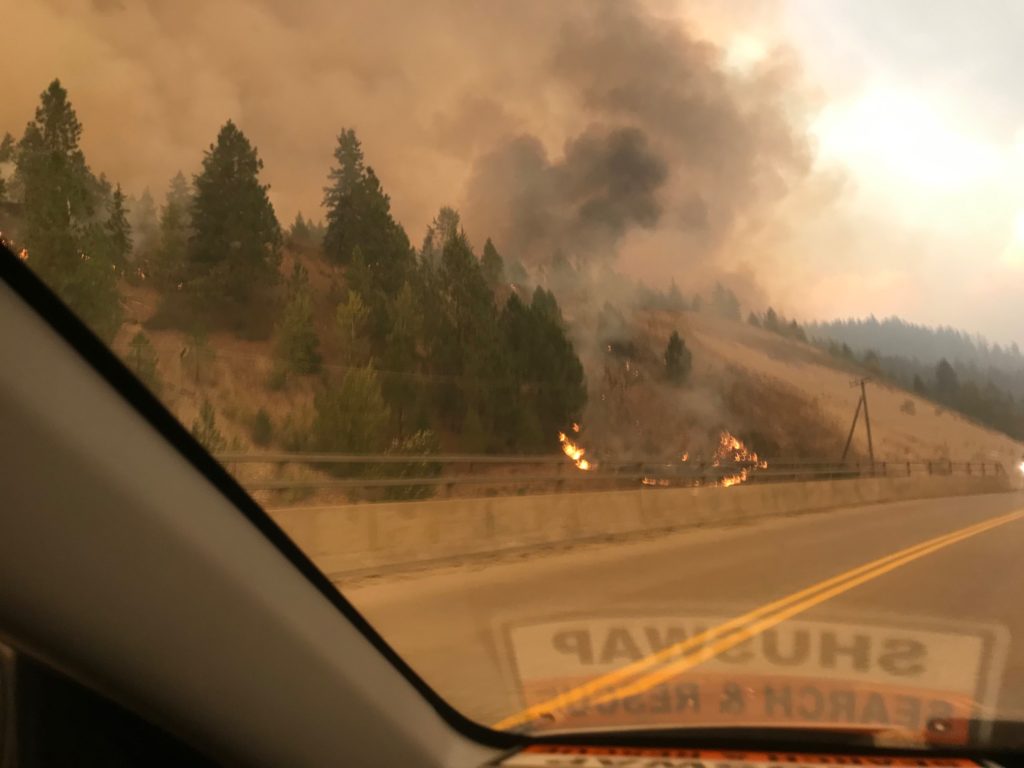
When the order was finally called at 2:16 pm, two SVSAR trucks made it into the Scotch Creek Fire Hall where they intended to set up their command centre, while trucks arriving later had to turn around because by then the road was closed. Gord and his team then drove to the marina where they launched the boats. At 4 pm the fire was in Scotch Creek, so they had to move the command centre to the Provincial Park boat launch. Gord brought 3 E-bikes on the boat, which were used along with a truck lent to them by a resident to go door-to-door to warn residents, who now had to evacuate to Seymour Arm.
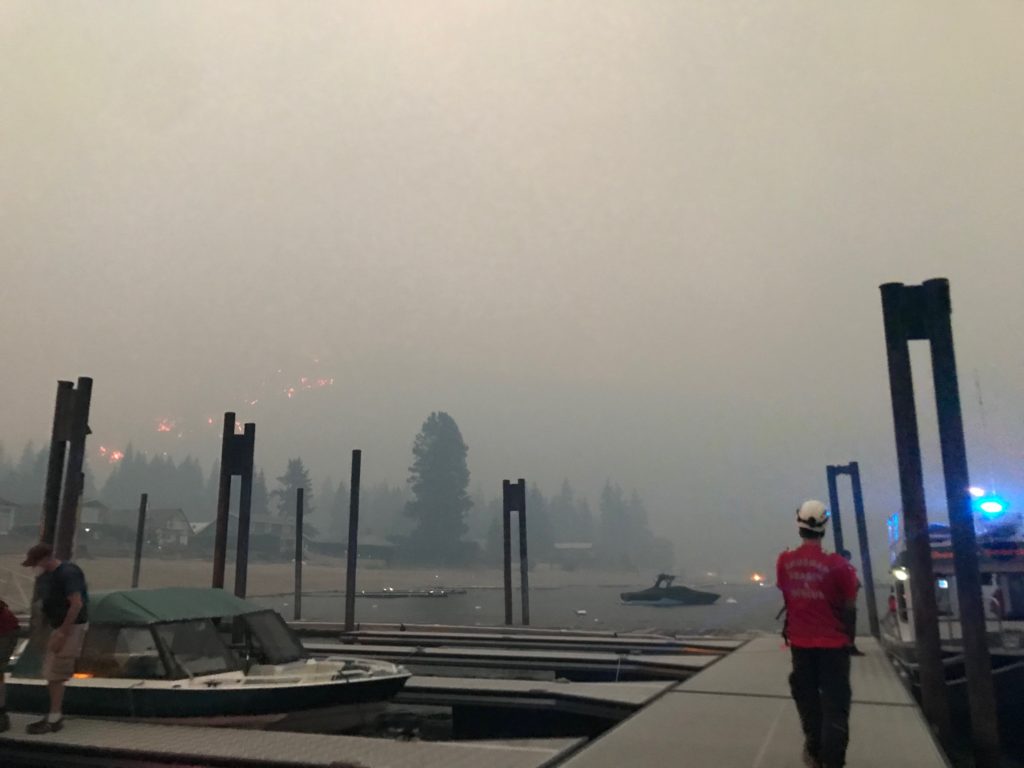
By 5:00 pm, it was apparent that some residents were not able to drive to Seymour Arm due to the raging fire in Celista and thus they used the boats to evacuate them across the lake, where buses were waiting to take them to Salmon Arm. Evacuation by boat was extremely challenging due to the poor visibility and the significant wave action due to the high winds that was pushing the fire towards communities. In total, approximately 25 people, including seniors, children, and dogs, had to be evacuated by Search and Rescue teams using boats.
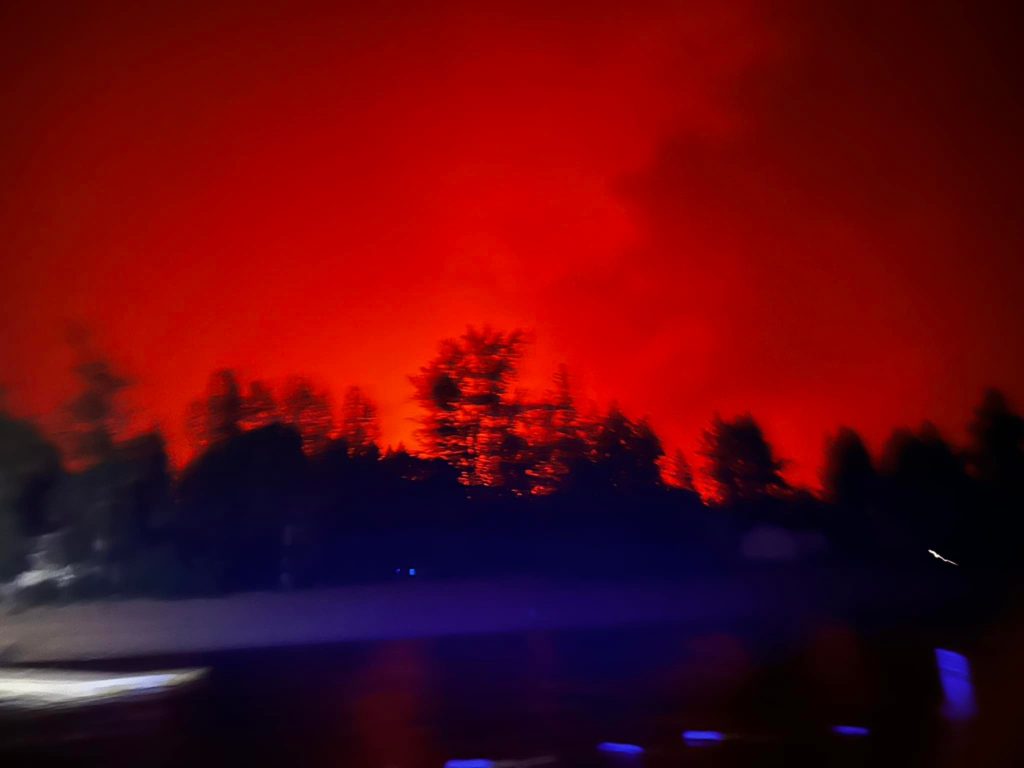
Thankfully, one valued member of the community who is in a wheelchair, small engine mechanic Charlie Finkhuber, had a guardian angel that fateful day. Close friend and local contractor, Howie Schuchster, was working in Magna Bay that day and had no idea about the raging fire in the hills that was moving quickly toward the lake. When he did find out, he raced to Scotch Creek to check on Charlie. By that time the road out was closed, so he phoned Search and Rescue who took their boat to Hilliam Road, where four team members picked up Charlie in his wheelchair and set him in the boat and took them across the lake.
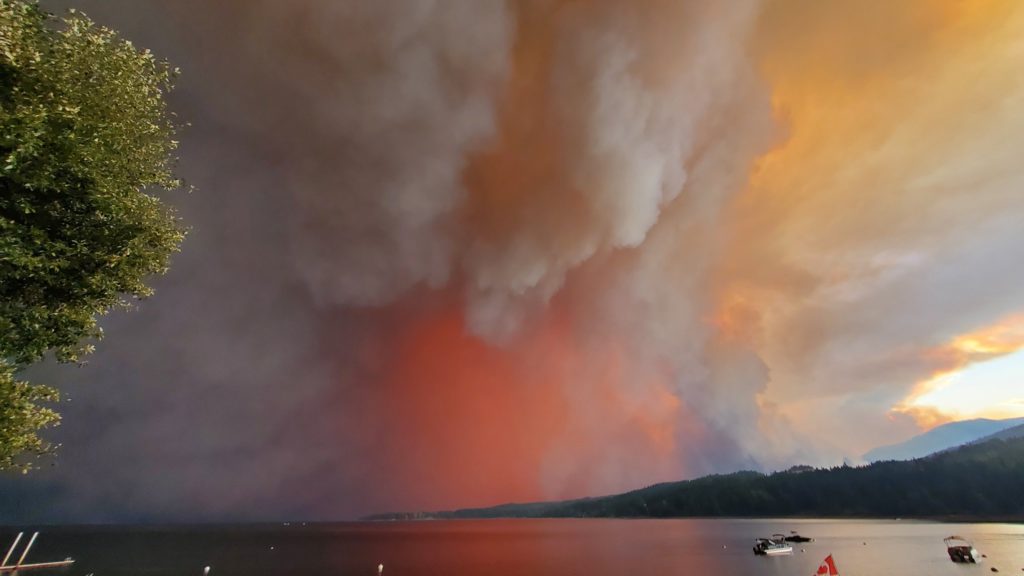
In Celista, the situation was even more critical than in Scotch Creek. Volunteer fireman with the Celista Fire Department were well aware of the threats posed by the firestorm, and urged the CSRD to issue an evacuation order, but the BC Wildfire Service was not responding to calls. Early in the afternoon of the 18th, the firemen began going door-to-door urging people to leave, even using a bullhorn to warn residents. By 2:30 pm, some were busy defending the school from the approaching flames, while others were watering the bridges in Talana Bay and Celista. It was not until 4:13 pm that the evacuation order was given and by that time many homes had burned.
There are many other harrowing evacuation stories, including that of ninety-year-old former Provincial Park superintendent Phil Rathbone, who had no notification about the fire and drove into Scotch Creek to find the fire racing across the Roane’s field. He then went above his property, where he found his neighbours fighting the fire and thanks to them many homes were saved including his own. When he finally drove out to Magna Bay, he passed volunteer firemen hosing the bridges and now remarks “our local firefighters didn’t run like a bunch of chickens like the BC Wildfire Service.”
POSTSCRIPT
[photos courtesy of Shuswap Search and Rescue and Canadian Marine Search and Rescue]
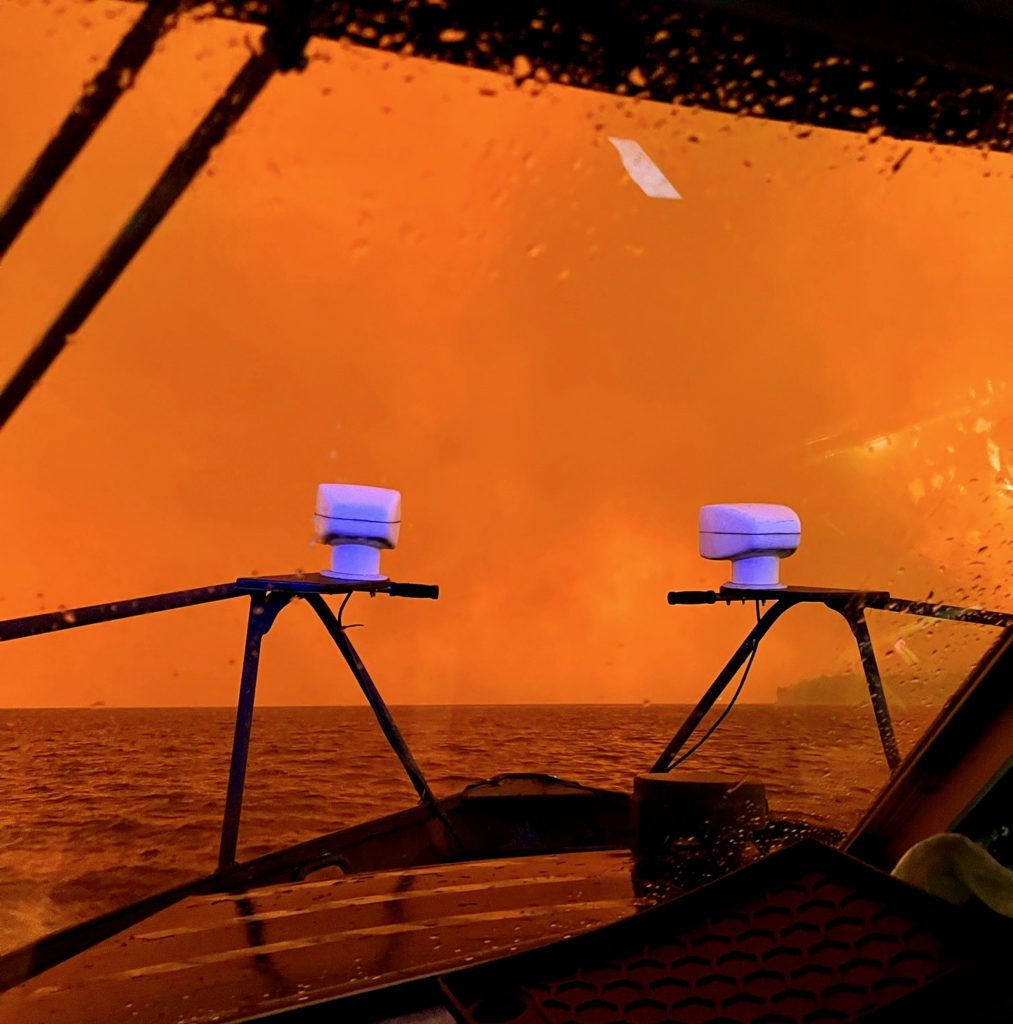
There are many more harrowing evacuation stories. One elderly couple who were unable to drive out because of the fire on either side of the road, decided to launch their boat in Scotch Creek. They soon encountered four-foot waves and the boat capsized. Thankfully, they managed to get to shore and the fire did not reach their home. Another fellow drove out through the fire, but had to wait on the road near the 670 Scotch Creek logging road while flatbed trucks were exiting and there was a policeman managing the traffic flow. A ember landed in his truck bed, where there were containers of fuel. Fortunately, as he drove through Lee Creek, there was a truck with a tank of water and the driver managed to douse the fire in his truck.
Mark Taggart from Anglemont had to evacuate to Seymour Arm. There he organized a convoy of vehicles and led them over the rough logging road to Malakwa in the middle of the night. As he came down the hill towards the highway, he looked back and saw the headlights of 40 vehicles behind him, slowing making their way also down the hill.
Jeff Boulter was in his home in Celista when the Fire Department knocked at his door at 3:30 and told him he just had minutes to leave. He drove through the fire to get to Scotch Creek where he waited to get out by boat. that was the last time he was in his home, which burned down shortly after he left.
Bonnie Dunn escaped from Magna Bay by boat after her friends phoned urging her to leave. By 3:30 she was on the water in rough waves and had no idea where she was due to the thick smoke. To the west she watched as the mountain exploded with fire and she saw Celista burn as the fire moved into it like molten lava. There were propane tanks exploding and the embers larger than her head were flying over her. Her GPS finally kicked in and guided her to Eagle Bay. To get to Kamloops, they had to drive through Falkland, as the highway was closed by then.
Traci Froese had a similar story. She kept phoning the fire centre who told to stay in place, but her friends in Sctoch Creek phoned and said there was fire everywhere. They tried to leave through Celista with their three vehicles and a trailer, but were turned around by the Fire Department. they had to leave their vehicles and left by boat. Out in the lake, a police boat urgently asked them to go and pick up others waiting on the shore, but they had no room. They too had to evacuate through Falkland.
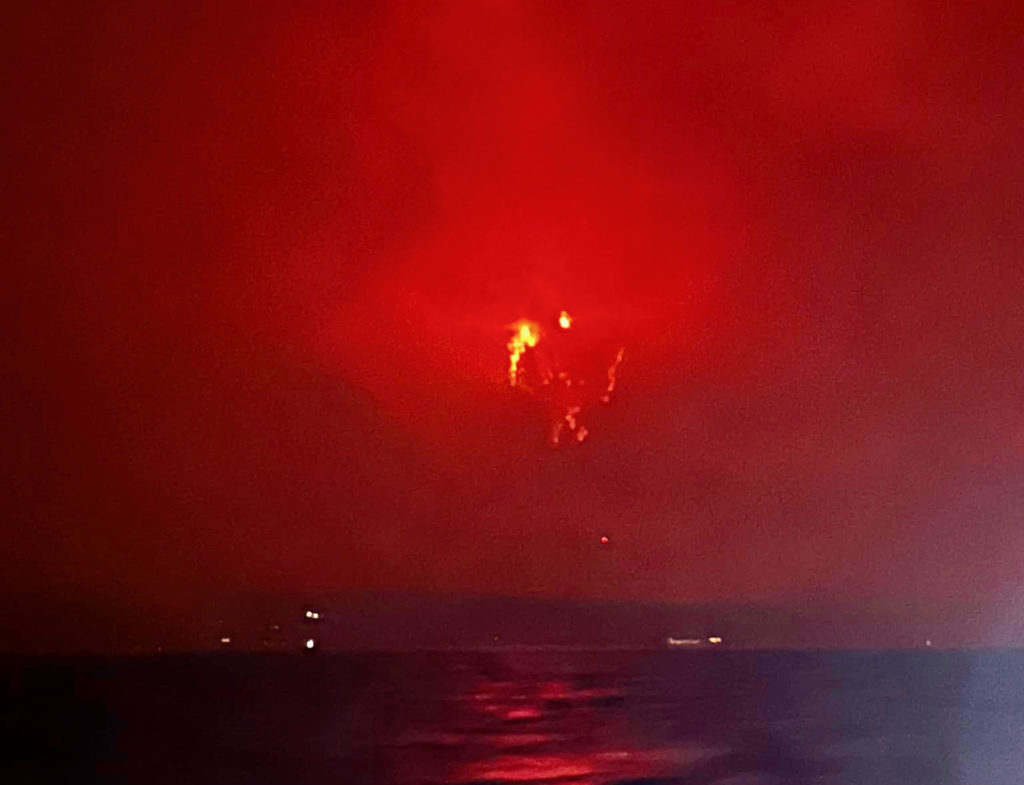
Dawn Berard’s account was particularly frightening as she was under the assumption that everything was fine because the fire service had announced the backburn was a success. She left her trailer in the Celista RV park and went to Scotch Creek for groceries and heard a rumour at Home Hardware that the fire was getting close and quickly went home to get her family and vehicles. It took them some time to organize and hook up their trailer. At first the bridge was closed and then when it opened, they headed west, not knowing if they “were driving into their coffin.” She was under enormous stress as they drove through three blocks of fire. Once in Scotch Creek, they spoke to first responders at the Market who told them they could leave by boat, but another firefighter told them not to get on a boat because the fire was causing its own weather system and it would be too dangerous. She felt like they were trying to decide which “would be the best way to die!” They phoned to arrange for a boat at Captain’s Village, as the wind became “unbelievable.” It was a rough boat ride in a private citizen’s boat to Sorrento, where it was necessary to also evacuate due to the approaching fire. In Salmon Arm, they went to emergency services, but because they only had a vacation place in Celista and were from Alberta, they were told they were on their own. With no possessions, they had to spend the night in a parking lot in their rented vehicle, where there were 15 other vehicles with people sleeping in them.
Three key partners in the rescue efforts were Captain’s village Marina, Shuswap Marina in Sorrento and the Bayside Marina in Blind Bay.
From a Canadian Marine Search and Rescue Shuswap Station #106 Facebook post:
Our team had been tirelessly dedicating their efforts to aid the communities and individuals affected by the spreading wildfires in the Shuswap region. Over the course of the night, two boats were working to evacuate residents from Scotch Creek and nearby areas. Search and Rescue personnel and firefighters, unable to use ground routes, were also evacuated. The impact of the wildfires on the communities around us has left us deeply saddened. Our team remains fully committed and available to continue supporting those who require assistance. In these trying times, it’s crucial to remember that we are all in this together. Ensuring the safety and well-being of everyone requires us to not only take care of ourselves but also extend our care to our family, friends, and neighbours. Let’s make a collective effort to support one another and navigate through these challenges with unity and compassion.
From a Shuswap Search and Rescue Facebook post:
Friday and Saturday saw a full group effort to ensure area residents were aware and adhering to Evacuation Orders in the Scotch Creek, Sorrento and Skimikin areas. With the help of Kamloops Search and Rescue we went door to door to ensure people’s safety and, with the help of Royal Canadian Marine Search and Rescue Station #106 and Vernon Search And Rescue Group Society, ferried multiple residents across the lake. Thank you to all involved for your continued efforts to keep our communities safe.
